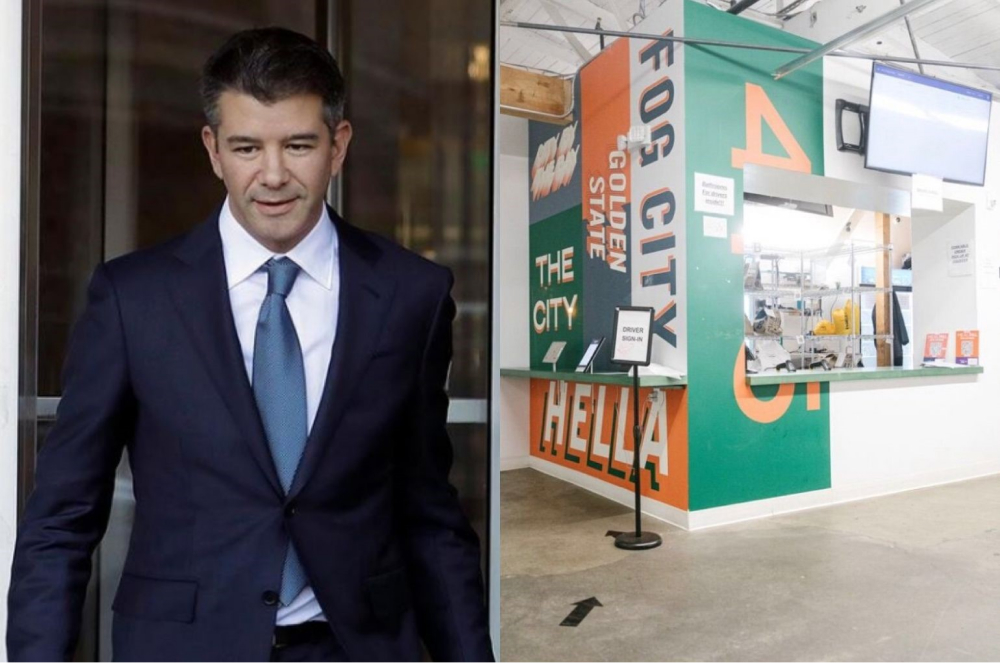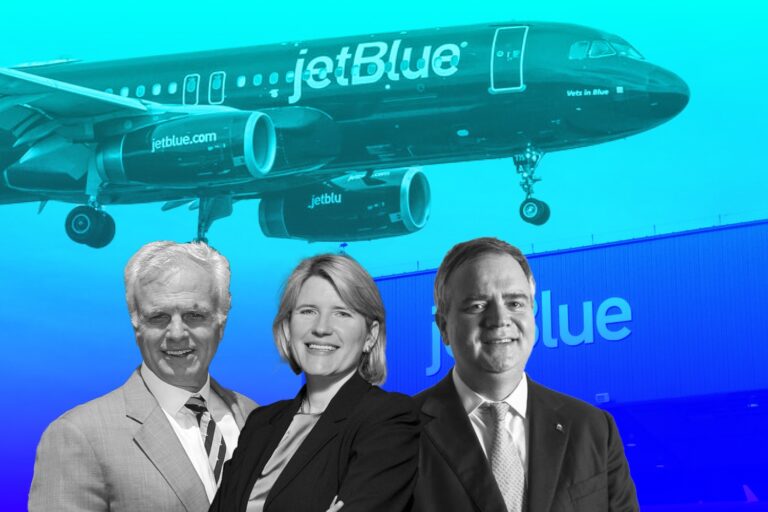CloudKitchens: Ex-Uber CEO Travis Kalanick’s Secret Startup
If you have been in the start-up community for a while, you must have recently heard about an influential startup – Kalanick’s CloudKitchens. Travis Kalanick, whose name has been usually associated with Uber as its co-founder and CEO, has pivoted from the ride-hailing industry to another kind of shareable market – “ghost kitchens.”
Speaking of the ex-Uber CEO’s start-up, CloudKitchens is dedicated to creating and managing ghost kitchens – restaurants that make food for delivery only. By opting for a delivery-only model, these restaurants are able to save money on real estate costs, upfront costs and employing servers. Plus, such food delivery has seen an uptick thanks to services like Grubhub, DoorDash, and Postmates.
Such a fascinating start-up idea, right? So, let’s just read on to discover more about CloudKitchens, how Travis Kalanick has bet on ghost kitchens ushers in venture capital interest as well as how such smart kitchen concept will possibly shape the future of the restaurant industry and its workers!
Travis Kalanick’s Focus on New Investment & Its Surprising Influence
#1. Kalanick’s Pursuit of New Business
As The Wall Street Journal first reported, Travis has announced his departure from the ride-sharing company – Uber Technologies Inc., the company he co-founded and turned into an icon of startup ambition before his tumultuous ouster as CEO in 2017.
Kalanick has sold more than $2.5 billion worth of stock in Uber since November, which is reportedly more than 90% of his stake. And according to an official statement from Uber, his resignation from the board will become effective December 31.
“Uber has been a part of my life for the past 10 years. At the close of the decade, and with the company now public, it seems like the right moment for me to focus on my current business and philanthropic pursuits,” Kalanick said in the statement announcing his departure.

As previously mentioned, he has recently embarked on new investments with his own fund. Now, Travis Kalanick may end being known more for supporting ghost kitchens than being CEO of Uber.
Kalanick joined the likes of DoorDash and GrubHub in shaking up the restaurant industry with third-party food delivery. After his 2017 ouster, he has kept changing it through a controlling stake in City Storage Systems — the Los Angeles-based parent company to the ghost kitchen start-up CloudKitchens. To be more exact, he spent $150 million to buy a controlling stake in this company through a fund that he established around the same time, called the 10100 Fund. The money was used to buy out most of the company’s earlier backers, including venture capitalist Chamath Palihapitiya, according to a report last year by Recode.
As the leader of Uber during the launch of its delivery service Uber Eats, Kalanick has luckily obtained invaluable experience in the food delivery space.
Furthermore, Kalanick’s time at Uber was responsible for his connection to the Saudi Public Investment Fund – to be more exact, Uber raised $3.5 billion from the Saudi fund in 2016, and Kalanick served on the board to build a futuristic Saudi mega-city.
Such Saudi connection may have helped CloudKitchens get the $400 million investment. That new money brings the company’s valuation to a reported $5 billion, which is truly a big deal for a startup that was just 15 people a year and a half ago.
#2. The Rise of “Ghost Kitchens” Venture Capital Interest
Amazingly, the impact of Kalanick’s investment has rippled across the United States to New York City, where another start-up was trying to get its feet off the ground.
“I think, at that time, Travis planting his stake in the space was a whole new proof of concept, of market validation,” Corey Manicone, the co-founder and CEO of Zuul Kitchens, said in an interview. “Every single venture capitalist that we had spoken to since then effectively circled back.”
In fact, most of the venture capitalists who are interested in food technology are now looking to ghost kitchens to capitalize on the restaurant delivery trend. Also known as virtual, cloud or dark kitchens, ghost kitchens are meant to address the demand for off-premise restaurant dining. Actually, based on Technomic’s report, consumers spent staggeringly $10.2 billion on orders through third-party delivery platforms like UberEats and GrubHub in 2018.
That striking growth has left restaurants struggling to keep up with orders. And a solution does exist – ghost kitchens. Not only does this enable the restaurant owners to address these existing concerns but this also empowers them to expand their business scope to new neighborhood. While some restaurants and third-party delivery platforms are running their own virtual kitchens, start-ups that “house” multiple restaurants under one roof are also gathering steam with investors.

When it comes to Travis Kalanick’s growth strategy, he has reportedly been ramping up the virtual kitchen business through a series of deals with start-ups in China, India as well as the United Kingdom.
Whereas the concept of cloud kitchens is still relatively new in the United States, they have gained more “traction” overseas in densely packed cities just because it makes delivery much more efficient and often these sites can be opened with less red tape than in the U.S.
It’s also noteworthy that the billionaire is reportedly funding the company mostly through his own wealth rather than seeking outside investors. Kalanick’s interest in ghost kitchens — and disinterest in venture funding — is, as a result, making it easier for others to seek funding.
According to Gaurav Jain, the co-founder and managing partner of Afore Capital, Kalanick’s investments in ghost kitchens also seem to have prompted more interest from the broader venture capital community, particularly with those who did not have experience in food delivery.
CloudKitchens: What It Is and How It’ll Shake Up the Hospitality Industry
Founded in 2016 and headquartered in Los Angeles, California, United States, CloudKitchens takes the form of a real estate company that does provide smart kitchens for delivery-only restaurants. To put it simply, they offer a variety of infrastructure and software that enables food operators to open delivery-only locations with minimal capital expenditure and time. If such a new startup manages to accomplish its set goals, brick and mortar restaurants are going to be replaced by ghost kitchens—consisting of no staff, only a few cooks and the food will be delivered by gig-economy workers through Uber Eats, DoorDash, Grubhub, and similar services.

As already mentioned, Kalanick raised around $400 million from Saudi Arabia’s sovereign-wealth fund and invested portions of his own fortune from Uber to build out concept worldwide. These amounts of money will be spent on purchasing inexpensive properties in urban areas. The locations will be in densely populated locations where deliveries can be made quickly.
These virtual restaurants are similar to the WeWork concept: WeWork rents out or buys real estate, then leases out the spaces to small businesses. In a similar fashion, CloudKitchens will own the property and commissary kitchens and then rent out the space to the restaurateurs.
The renters could be well-known brands that do not wish to spend the money for another traditional location or startup entrepreneurs – those who do desire to experiment with a new restaurant concept but can’t afford a stand-alone location.
Undoubtedly, for current or potential restaurant owners, it’s much easier for them to get started in a CloudKitchens site with a small deposit (along with some other expenses, of course), instead of paying over $1 million to build out a brick and mortar restaurant. With this type of “ghost” restaurant, the costs will be considerably less than going the traditional route.
Besides that, partnering with CloudKitchens, restaurant owners will not have to search for a location, conduct foot traffic studies, sign a long-term, bear costly lease, put up a lot of money upfront for the lease, invest in all of the necessary kitchen appliances, tables, chairs or other boring tasks. Also, the startup restaurateur won’t have to bother for employing or paying a large staff of waiters, busboys, bartenders, and workers. Actually, all they need to get up and running is a chef and a couple of cooks to prepare the food. This could be a boom for restaurant entrepreneurs.

As opposed to going to a sit-down location, customers can place their orders through an app and the food is then delivered by independent contractors. Presumably, the cost savings should be passed along to the customers who will pay less than they would if they went to a regular restaurant.
Such a concept perfectly feeds into the trend of people staying at home, watching Netflix and paying for food delivery. What’s more, it also is a play on the unintended consequences of the push to increase the minimum wage. Traditionally, the restaurant business notoriously operates on a razor-thin profit margin. The workers turn out to be one of the largest expenditures. Without the need to pay waiters, hosts, and other restaurant personnel, profits are expected to be much higher. There is also no need to pay exorbitant rent, as the kitchens are run out of communal spaces in cheap locations. And since the delivery persons are contractors, restaurant owners have no obligation to grant these drivers benefits, sick and vacation days.
According to CloudKitchens, the food delivery market is expected to grow from $35 billion today to staggeringly $76 billion in two years, reaching up to $365 billion by 2030. Whereas the majority of food delivery comes from traditional restaurants, these locations are, in fact, not always set up to successfully run this function. As a result, this approach seems attractive to both the consumer and the perspective restaurateur.
Unfortunately, there may be a certain number of people who will lose out if this trend takes hold. These are the hard-working folks on the lower end of the work spectrum. Typically, new immigrants to the U.S. – those who are yet to possess a high school degree or are unable to procure a full-time, permanent job – will rely upon, in part, jobs in the food industry. Without these first-rung types of positions available, it will make it harder and harder for certain groups to gain access to the working world.
From CloudKitchens’ perspective, it may also run into the same issues that are plaguing Uber, Lyft and other app-based tech companies that work with independent contractors. There is a big movement by state legislatures, such as California and New Jersey, to go after companies that, in their opinions, misclassify employees as independent contractors. The states claim that the tech companies are taking advantage of these workers by not offering the benefits and pay that would be ordinarily afforded to an employee. More than that, the states assert that the companies are doing this to avoid paying their fair share of taxes.
The Bottom Lines
Travis Kalanick, the co-founder and former CEO of Uber, is back with a secretive startup already valued at $5 billion. Adopting the “ghost kitchen” trendy concept, his new company, CloudKitchens is fulfilling its role to turn retail space into leasable kitchens for chefs who wish to start food-delivery businesses. In the not-too-distant future, we can expect to watch out exciting changes within the restaurant and food services landscape thanks to this start-up.









